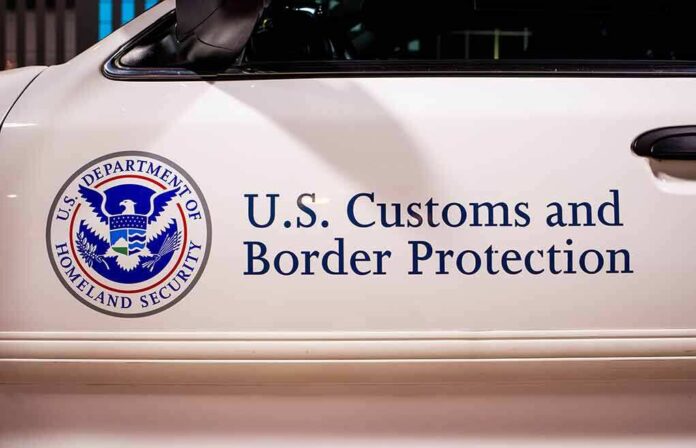
Privacy Victory: Federal Court Reins in Border Agents’ Digital Snooping
Well, well, well, fellow patriots! It seems the Constitution has scored another victory against government overreach. Just when we thought our digital lives were an open book at the border, a federal court in New York has decided to throw a wrench in the works of overzealous border agents. But before you start celebrating by waving your smartphones in the air, let’s dive into what this ruling really means for us freedom-loving Americans and why it’s crucial to stay informed about our rights in this ever-changing digital landscape.
Court Ruling: A Game-Changer for Digital Privacy
In a landmark decision, a federal court in New York has ruled that border agents can no longer search electronic devices without a warrant at John F. Kennedy International Airport. This ruling marks a significant shift in how our Fourth Amendment rights are interpreted at border crossings.
“The ruling, you know, means that these warrantless searches can no longer occur.” – Scott Wilkens of the Knight First Amendment Institute.
Constitutional Protections Affirmed
The court’s decision firmly states that warrantless searches of electronic devices violate our constitutional protections against unreasonable searches and seizures. This is a stark departure from previous practices, where border agents could freely rummage through our digital lives without even a hint of suspicion.
Implications for Travelers
This ruling recognizes the vast amount of personal information contained in our electronic devices. The court aptly pointed out, “Just as in Riley, the cell phone likely contains huge quantities of highly sensitive information—including copies of that person’s past communications, records of their physical movements, potential transaction histories, Internet browsing histories, medical details, and more … No traveler would reasonably expect to forfeit privacy interests in all this simply by carrying a cell phone when returning home from an international trip.”
For travelers, this means a significant boost in digital privacy protection. No longer can border agents arbitrarily scroll through your photos, messages, or browsing history without first obtaining a warrant.
Potential for Appeal and Supreme Court Review
While this ruling is a cause for celebration among privacy advocates, it’s important to note that it may face challenges. The decision could be subject to appeal and potentially make its way to the Supreme Court, which has yet to rule definitively on the applicability of the border search exception to digital devices.
First Amendment Considerations
The court’s decision also acknowledges the potential impact on First Amendment rights, particularly for journalists and other professionals who carry sensitive information on their devices. As noted by Grayson Clary, “As the court recognized, letting border agents freely rifle through journalists’ work product and communications whenever they cross the border would pose an intolerable risk to press freedom.”
This recognition adds another layer of protection for those engaged in constitutionally protected activities, ensuring that border crossings don’t become choke points for free expression and press freedom.
Sources
Court rules border agents can no longer search electronic devices without a warrant
Federal Judge Makes History in Holding That Border Searches of Cell Phones Require a Warrant
Federal Court Says Warrant Required for Device Searches at the Border
Landmark Ruling Strikes Down Warrantless Device Searches of US Citizens at Borders
More From Around The Web
The FBI conducted 278,000 warrantless searches on US citizens. That’s Gobsmacking!
How Warrantless Searches at the Border Are Harming Press Freedom
No More Warrantless Cell Searches, Unless You Consent












